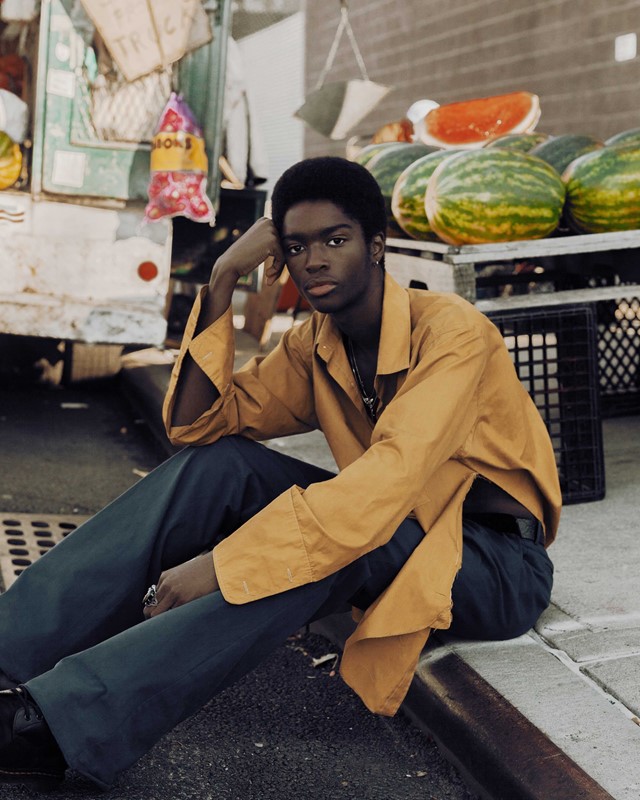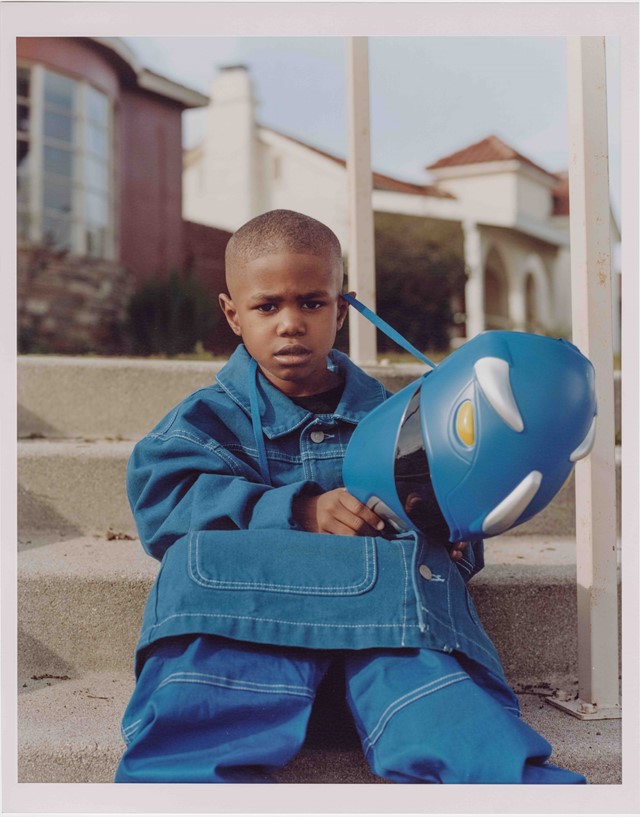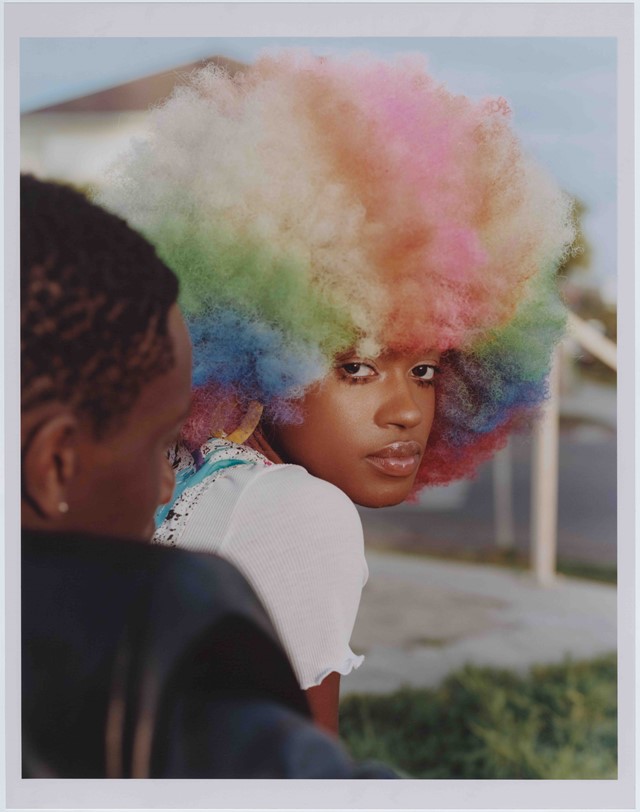With his first book, Micaiah Carter deftly weaves together personal and commercial works into a majestic tapestry of contemporary Black American life
As the baby of the family, Micaiah Carter grew up looking through his father’s photo albums chronicling Black American life during the 1960s, 70s and 80s. Blessed with the perfect blend of style and substance, the pictures captured the beauty and strength of the Black Power era, while rooting Carter’s family in the history of the times. “Seeing my father, aunts, and uncles at a younger age spoke to me the most. I got to see who they were and how they’ve grown from that point,” Carter says. “Being the youngest, my parents gave me insight into where I came from, what my name meant, pinpointing the different characteristics, facial features, things that genetically come from being born from my mum and dad.”
As he paged through the photo albums, Carter felt pride watching the lives of his loved ones develop over the years, and celebrated the lives of those who had passed on – and through it all, one principle stood fast: Be yourself. “No one tried to be someone else. Of course, everyone had influences and inspirations that they looked up to and connected with on a deeper level,” he says. Grounded in knowledge of self, Carter developed his own sensibilities with a sense of poise from a young age. “My point of view gave me a lot of confidence, knowing that it’s not just something that came to me,” he says. “I think your point of view is created through generations; it’s what you’re raised with and how those things live on with you, whether you realise it or not.”
Using the wisdom, knowledge, and understanding imparted by his family, Carter set forth to become one of the leading fashion and portrait photographers of his generation. At 28, he has photographed luminaries including Megan Thee Stallion, Kehinde Wiley, Solange, Spike Lee, Zendaya, and Quincy Jones with the same care and tenderness he brought to photographing his family for the 2022 series, American Black Beauty.
Like his father, Carter recognizes the power of the photo book as a space for reflection, connection, and communion across space and time. With Micaiah Carter: What’s My Name (Prestel), he brings it home with a photo album of his very own. Edited by Sarah Hasted, founder of International Art Advisory, What’s My Name deftly weaves together personal and commercial works into a majestic tapestry of contemporary Black American life. And the pièce de résistance is the elegant sprinkling of his father’s photographs throughout the book.

As Carter began working on his debut monograph, he discovered another level of connection to his father embedded in the images themselves. “In my work, I’m freestyling but at the same time all the inspiration and images growing up are coming out in ways I didn’t notice until I sat down,” he says. “I began to see how the photographs connect, and find evidence of something that’s almost totally unrelated that shows up as a connection to my family heritage and lineage.”
With What’s My Name, he returns to where it all began: the albums of his childhood that inspired deeper consideration of just what it was all about. In Carter’s monograph, you may happen upon a black-and-white spread; on the left, a 2018 untitled fashion photograph by Carter of two men in curious catsuits opposite a 1975 photo of his father giving daps to another Black soldier, both stationed in Vietnam during the war. The pairing is intimate and enigmatic, inviting and exciting, provocative and elegant.
“I want to showcase the work that mean something near and dear to my heart, and the way it connects not only to the world but also to our inner selves and childhood things,” says Carter. “I was looking at how sacred those albums are and how personal they can be to each individual, how it creates the essence of their personality and interests. I used that same practice in my work.”

In Carter’s hands, the photograph becomes a kind of alchemy where regular folks glow and sparkle like stars, while celebrities feel warm and familiar, like relatives we’ve grown alongside with their images. “How can we come together to elevate things and speak to something that feels down to earth and grounded?” Carter says. “Sometimes there’s a naïveness of it, going into something not really knowing what you’re doing but knowing I have to create something because there’s something inside of me that needs to say something. I was never a big vocal speaker about how I felt but I could always put those feelings into my photographs.”
Micaiah Carter: What’s My Name is published by Prestel and is out now.






